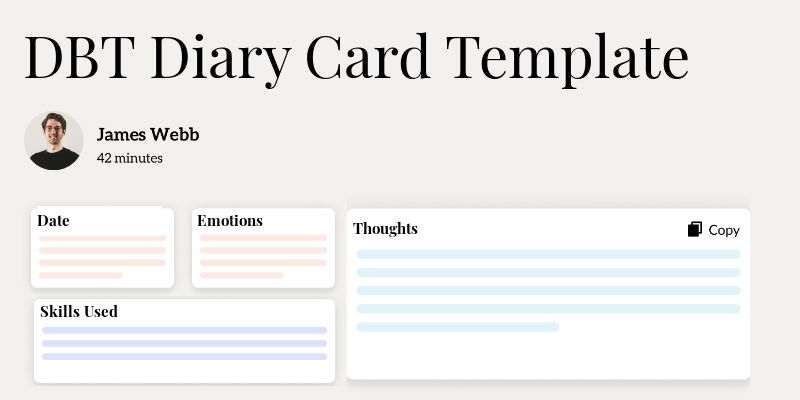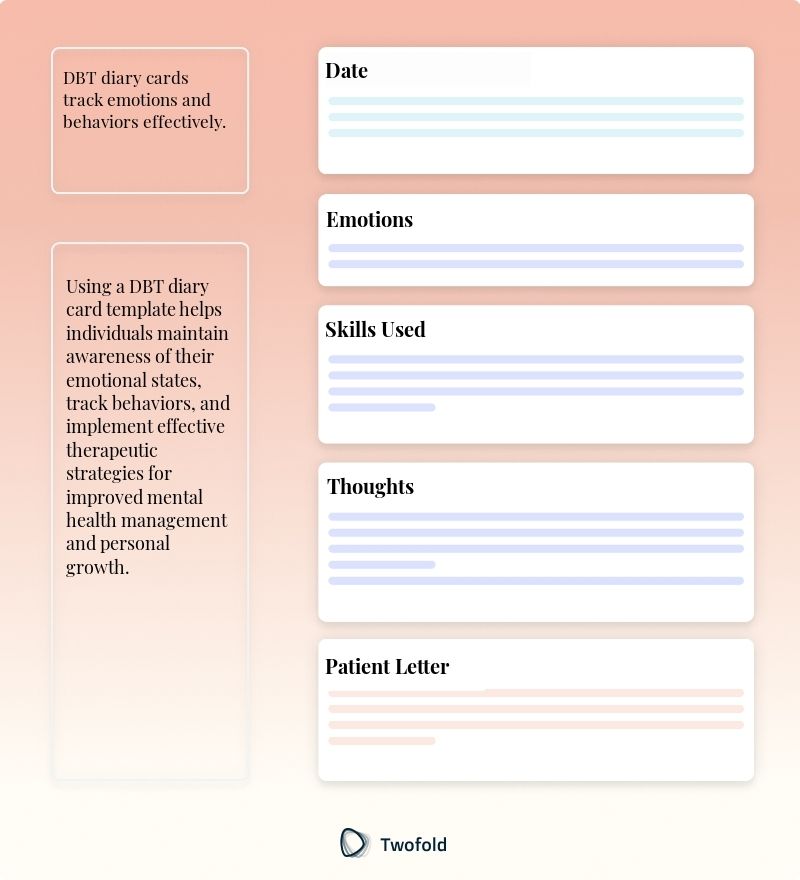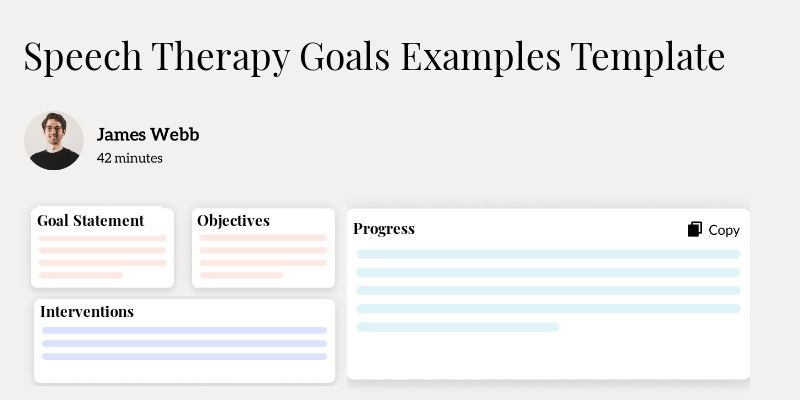
DBT Diary Card Template
Imagine entering a psychotherapy session with a streamlined, foolproof process that enhances the therapeutic experience for both you and your client. If you've ever struggled with keeping track of emotional fluctuations or therapeutic progress, the DBT Diary Card Template could be your answer. This template isn't just about logging information; it transforms the way you engage with Dialectical Behavior Therapy, making it more structured and impactful.
What Is a DBT Diary Card Template?
A DBT Diary Card Template is a tool used in Dialectical Behavior Therapy to help clients track emotions, behaviors, and the use of therapeutic skills on a daily basis. This template serves as a structured form where clients can log data related to their mental health journey.
The diary card is designed to enhance communication between therapists and clients by providing tangible insights into the client's progress. It acts as both a therapeutic intervention and a reflective exercise for clients.
Key Components of a DBT Diary Card
This template includes several crucial elements:
- Mood and Emotion Tracking: Allows for the daily recording of emotional states.
- Behavior Log: To note behaviors that align with therapy goals or indicate distress.
- Skill Usage: Clients track the use of DBT skills throughout the week.
- Overall Goal Progress: A section to reflect on specific targets set during therapy.

How to Use a DBT Diary Card Template: Step-by-Step Process
Step 1: Preparation
Discuss the purpose of the diary card with your client and explain how it can aid their therapy journey. Customize the template if necessary to fit personal objectives.
Step 2: Daily Entries
Encourage the client to complete the card every day, ensuring they log significant emotions, behaviors, and skills used.
Step 3: Weekly Review
At the end of each week, review the diary card with your client. Discuss patterns and areas of improvement, celebrating progress and identifying challenges.
Step 4: Adjustments
Based on the review, make any necessary changes to the therapy plan, such as introducing new skills or modifying goals.
Benefits of a DBT Diary Card
Benefit | Explanation |
|---|---|
Enhanced Client Engagement | Promotes active client participation in their mental health care. |
Improved Communication | Facilitates better dialogue between therapist and client through concrete data. |
Progress Tracking | Offers a structured way to measure advancements in therapy. |
Data-Driven Insights | Empowers therapists to make informed decisions based on recorded information. |
Stakeholders in DBT Diary Card Usage
Several key players benefit from the use of this template:
- Clients: John used it daily to observe his mood patterns and felt more in control of his emotions.
- Therapists: Dr. Smith found it invaluable for tailoring sessions and tracking client progress.
- Family Members: Emily's family noticed a positive change as she became more communicative about her emotional state.
Example of a DBT Diary Card PDF
You can access a sample DBT Diary Card PDF that illustrates how clients log daily entries and use simplifications to capture their experiences effectively.
Real-World Use Cases: Practical Impact of the DBT Diary Card Template
This template has tangible impacts across various scenarios:
- Sarah, a busy college student, uses the template to manage stress and balance academic pressure with mental well-being.
- Mark, a veteran suffering from PTSD, tracks his triggers and employs DBT skills to cope better on a daily basis.
- Anna, navigating major life transitions, leverages the diary card to cultivate awareness of emotional fluctuations and maintain stability.
Conclusion
The DBT Diary Card Template proves to be a valuable asset in both therapeutic settings and personal mental health management. It assists clients in tracking progress, fosters constructive communication with therapists, and serves as a foundation for data‑driven insights. Whether you're a practitioner or a client, integrating this template into your routine can significantly enhance therapeutic outcomes and personal growth.
Disclaimer: This article is for informational purposes only and does not constitute legal or medical advice. Always consult professional guidelines and regulatory bodies for specific compliance requirements.

Dr. Danni Steimberg
Dr. Danni Steimberg is a pediatrician at Schneider Children’s Medical Center with extensive experience in patient care, medical education, and healthcare innovation. He earned his MD from Semmelweis University and has worked at Kaplan Medical Center and Sheba Medical Center.
A diary card is only powerful if it turns urges into skill use you can track and coach. This quick loop—note target symptoms, rate urges, log skills used—makes sessions sharper and homework stickier.
- Track Targets First: List priority behaviors (e.g., self-harm, bingeing, anger outbursts) with daily yes/no and a 0–5 severity so trends jump off the page.
- Pair Urges with Context: For each target, capture urge intensity (0–10) plus a 3–5 word trigger (“argument w/ partner”). This creates instant coaching entries.
- Close with Skills Used + Effect: Check skills attempted (Mindfulness, Opposite Action, TIP, PLEASE) and add a 0–10 “helpfulness” score—data you can leverage next session to reinforce what worked and refine what didn’t.
Frequently Asked Questions
Reduce burnout,
improve patient care.
Join thousands of clinicians already using AI to become more efficient.

Progress Notes Template
Discover practical treatment plan templates to enhance your documentation efficiency.

Medical Chart Template
Discover practical Medical Chart templates to enhance your documentation efficiency.

Speech Therapy Goals Examples Template
Discover practical Speech Therapy Goals Examples Template templates to enhance your documentation efficiency.

